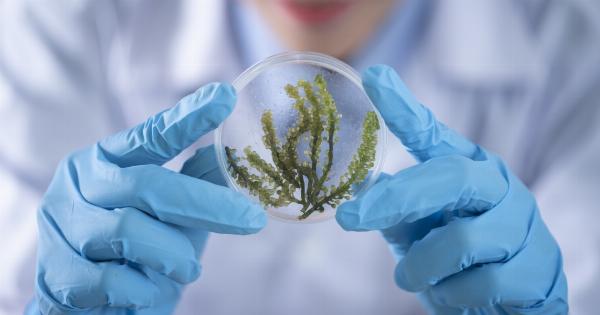Menopause is a natural biological process that signifies the end of a woman’s reproductive years. During this phase, women experience a wide range of physical and emotional changes, one of which is hot flashes.
Hot flashes, also referred to as vasomotor symptoms, are sudden feelings of intense heat that can cause sweating, flushed skin, and an accelerated heartbeat. These episodes, which can last anywhere from a few seconds to several minutes, often occur during the night and can disrupt sleep patterns, leading to tiredness and irritability.
Causes of Menopausal Hot Flashes
The exact cause of hot flashes during menopause is still not fully understood. However, it is believed to be linked to hormonal changes that occur in a woman’s body during this time.
During menopause, the ovaries produce less estrogen and progesterone, two essential hormones for reproductive health. As the body adjusts to these hormonal changes, it can trigger an imbalance in the hypothalamus, the part of the brain responsible for regulating body temperature. This imbalance can lead to the sudden heat sensations associated with hot flashes.
Identifying Triggers
Although the hormonal changes associated with menopause are the primary cause of hot flashes, certain triggers can exacerbate the symptoms.
By identifying these triggers, women can take proactive steps to manage and minimize the frequency and intensity of hot flashes. Some common triggers include:.
- Spicy Foods: Consuming spicy foods that contain ingredients like chili, cayenne pepper, or hot sauce can increase body temperature and trigger hot flashes.
- Hot Beverages: Drinking hot beverages like coffee, tea, or hot cocoa can lead to a sudden surge in body temperature, causing hot flashes to occur.
- Alcohol and Caffeine: Both alcohol and caffeine are known to dilate blood vessels, leading to increased body heat and potential hot flash episodes.
- Stress and Anxiety: Emotional stress and anxiety can stimulate the release of adrenaline, which can trigger hot flashes.
- Warm Environments: Exposure to warm and humid environments, such as saunas or hot tubs, can induce hot flashes.
- Tight Clothing: Wearing tight-fitting clothing can trap heat, causing body temperature to rise and hot flashes to occur.
Managing Hot Flashes
While it may not be possible to completely eliminate hot flashes, there are several strategies that can help manage and alleviate their frequency and intensity. Here are some effective approaches:.
1. Hormone Replacement Therapy (HRT)
HRT involves taking medication that contains estrogen and progesterone to alleviate menopausal symptoms, including hot flashes.
However, it’s essential to consult with a healthcare professional before considering HRT, as it may not be suitable for everyone and can have potential side effects.
2. Lifestyle Modifications
Adopting certain lifestyle changes can significantly reduce the impact of hot flashes. These include:.
- Engaging in regular physical exercise, which helps regulate body temperature and reduces the severity of hot flashes.
- Wearing loose, breathable clothing made from natural fibers like cotton to prevent overheating.
- Keeping a portable fan handy to cool down when a hot flash strikes.
- Practicing stress-reducing techniques such as deep breathing exercises, yoga, or meditation to minimize hot flashes triggered by anxiety.
3. Dietary Modifications
Making changes to your diet can play a significant role in managing hot flashes. Some helpful tips include:.
- Avoiding known trigger foods like spicy dishes or hot beverages and opting for milder options.
- Including foods rich in plant estrogens, such as soy products, flaxseeds, and tofu, which can help balance hormone levels.
- Consuming foods high in calcium and vitamin D to maintain bone health, as menopause can increase the risk of osteoporosis.
- Limiting alcohol and caffeine consumption, as both can worsen hot flashes.
4. Alternative Therapies
Several complementary and alternative therapies have shown promise in managing hot flashes. These include:.
- Acupuncture: Traditional Chinese medicine practice involving the insertion of thin needles into specific points of the body to alleviate symptoms.
- Herbal Supplements: Natural remedies such as black cohosh, red clover, and evening primrose oil may help reduce hot flashes, but it’s important to consult with a healthcare professional before starting any herbal supplements.
- Homeopathy: Some women find relief from hot flashes using homeopathic remedies, but more research is needed to validate their effectiveness.
Seeking Professional Help
If hot flashes are significantly impacting your quality of life and none of the self-help methods provide adequate relief, it’s essential to consult with a healthcare professional.
They can evaluate your symptoms, provide additional support, and recommend suitable treatment options tailored to your specific needs.
Conclusion
Hot flashes are a common and often disruptive symptom experienced by women during menopause. While they cannot be completely avoided, understanding the triggers and implementing effective management strategies can significantly reduce their impact.
From lifestyle modifications to alternative therapies, a combination of approaches can provide relief and enable women to navigate this phase of life with greater ease and comfort.





























